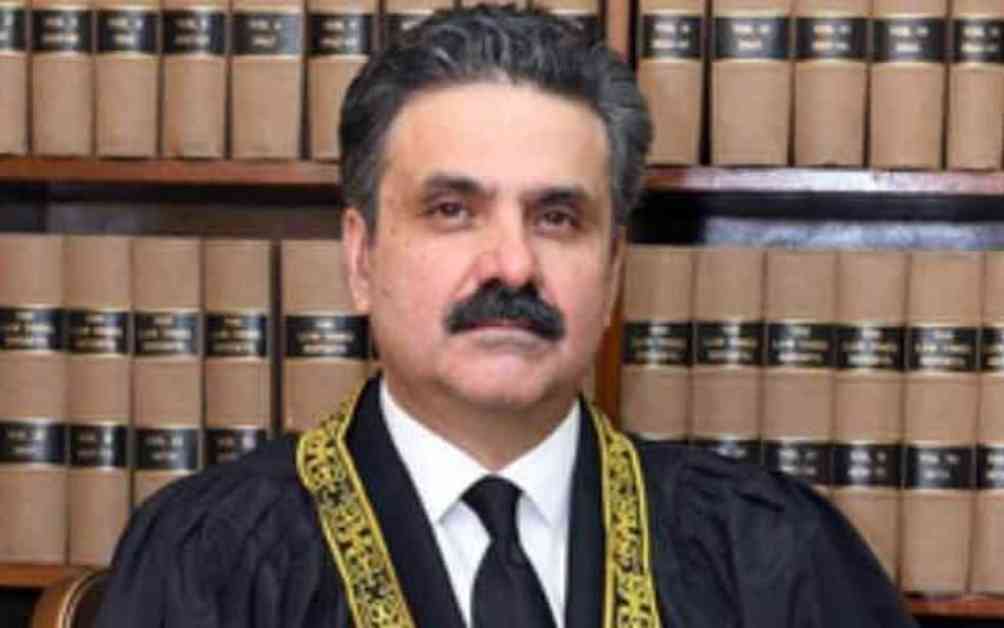Four esteemed judges of the Supreme Court, namely Justice Mansoor Ali Shah, Justice Muneeb Akhtar, Justice Ayesha Malik, and Justice Athar Minallah, have recently penned a letter to Chief Justice of Pakistan, Yahya Afridi, emphasizing the necessity of delaying new judicial appointments. This letter, aimed at the chairman of the Judicial Commission, underlines the significance of convening a full court to address critical issues surrounding judicial appointments and an ongoing constitutional amendment case. The judges expressed their concerns regarding the potential complications that could arise from imminent judicial appointments and their potential impact on the constitutional amendment case in progress.
The Honorable judges are deeply invested in ensuring that the constitutional bench overseeing the 26th Amendment case is expanded to encompass a full court. They have warned of potential disputes regarding the composition of the full court should new judges be appointed before this crucial step is taken. Drawing attention to a recent incident where three judges were transferred to the Islamabad High Court, necessitating a re-taking of their oaths as per constitutional requirements, the judges underscore the need for immediate attention to the constitutional amendment case. They advocate for a full court to preside over the case, emphasizing the principles of transparency and impartiality that such a setup would uphold.
In their compelling letter, the judges highlight the urgency of the matter at hand, emphasizing that any precipitous appointments before the next hearing could jeopardize the integrity of the judicial process and erode public trust. They pose thought-provoking questions about the constitution of the full court, pondering the inclusion of newly appointed judges and the qualifications necessary for the bench to be considered a true full court. Their insightful commentary delves into the complexities of the situation, pointing out the potential risks to public perception and trust if the current constitutional bench continues to preside over the case.
Expert Insights on Judicial Appointments and Constitutional Amendment
Legal experts have weighed in on the judges’ letter, acknowledging the gravity of the issues raised. Renowned constitutional scholar, Dr. Sarah Khan, underscores the importance of upholding the integrity of the judicial system, particularly in cases of constitutional significance. She notes that the concerns raised by the judges regarding the composition of the full court and the potential implications of hasty appointments are valid and warrant careful consideration. Dr. Khan emphasizes the need for a thorough and transparent process in judicial appointments to preserve the credibility of the judiciary and maintain public confidence in the legal system.
Public Reaction and Perceptions
The public response to the judges’ letter has been mixed, with some expressing support for the judges’ stance on delaying appointments to ensure a fair and impartial hearing of the constitutional amendment case. Others, however, have raised concerns about the delays in the legal process and the potential impact on pending cases. Social media platforms have been abuzz with discussions about the role of the judiciary in upholding the rule of law and the importance of maintaining public trust in the legal system. The judges’ letter has sparked a broader conversation about judicial independence, transparency, and accountability, resonating with citizens who value the principles of justice and fairness in governance.
As the legal community grapples with these complex issues, the judges’ call for a full court to address judicial appointments and the constitutional amendment case stands as a testament to their commitment to upholding the principles of justice, transparency, and accountability in the legal system. In a time of uncertainty and change, their unwavering dedication to the rule of law serves as a guiding light, illuminating the path towards a stronger, more resilient judiciary that safeguards the rights and freedoms of all citizens.









